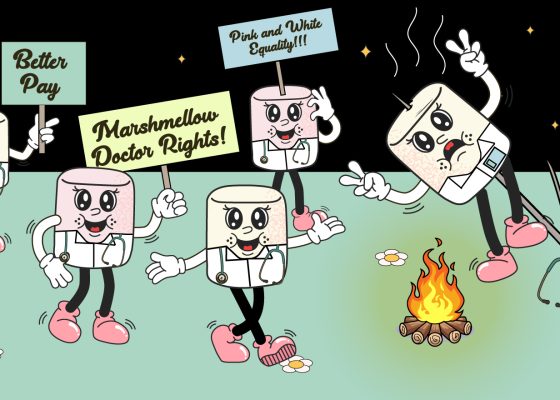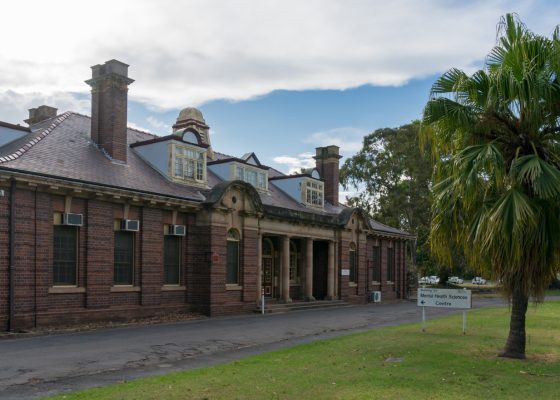Amid long-standing reports of bullying and harassment, healthcare leaders are being urged to treat staff wellbeing as vital to patient safety and to take real responsibility for workplace culture.
What does respect look like in high-pressure hospital environments? Who gets to define it and who pays the price when it’s denied?
An ABC 4 Corners episode posed these questions on Monday night with an expose into a Melbourne neurosurgeon, casting a spotlight on allegations of bullying and inappropriate conduct.
The surgeon became known to the public via a video of him smashing Kooyong independent Monique Ryan’s election sign into a rubbish skip before the federal election. After the incident, Epworth Hospital ended his contract.
This termination shocked many, but the 4 Corners story highlighted that for some who worked with him, it was a long overdue reckoning. They shared stories about bullying, sexism, and how uncomfortable they felt in his presence.
In Australia’s healthcare system, life-saving expertise often commands reverence, which can shield inappropriate behaviour. This is not new. Bullying and harassment in medicine was examined by a senate inquiry in 2016 and the Royal Australasian College of Surgeons (RACS) began working towards building a culture of respect in surgery.
In a response to the 4 Corners program, the RACS highlighted the work they’ve done, including:
- the 2015 Expert Advisory Group (EAG) review, which led to wide-ranging changes to education, workplace culture, and complaints handling.
- mandatory training in professional conduct and cultural safety for all Fellows and Trainees.
- stronger processes for addressing complaints.
“While meaningful progress has occurred, we recognise that cultural change is ongoing and requires coordinated effort. RACS has worked with the relevant regulators in the past and is calling on more effective coordination between regulators, employers and the College.
“We all have a part to play to ensure that the behaviours that the community expects are seen across the medical industry,” an RACS spokesperson said.
According to CEO of A Better Culture, Dr Jillann Farmer, the problem is there is a vacuum of leadership at the top.
“It is just ridiculous that there’s no power-based leadership on this. The Commonwealth and the states are very willing to hand it off to people like me or to the AMA or to the colleges and say, ‘fix this’. But who holds the primary responsibility for what happens in workplaces? Is it any of those people? It’s not,” she said.
A Better Culture was created in response to results from successive Medical Training Surveys (MTS), conducted by the Medical Board of Australia. These surveys found consistent rates of bullying, harassment, discrimination, and racism, with significant differences between male, female and non-binary trainees.
The project goal was to design and develop a multi-faceted engagement strategy to address the long-standing issues in the culture of medicine, in collaboration with all key stakeholders. The project received Commonwealth Government funding for two years, which they stretched to two and a half years.
However, funding ran out on 30 June this year. Despite putting in an application for further funding, they were unsuccessful, and the timing of the election and subsequent caretaker mode made it difficult to advocate for continued support.
“No one was ever going to fix that in the two-year timeframe we were given,” she said.
They created a Pathway to Better report which reflects on the problem and provides recommendations from the working group, with a path forward for making change.
“We have formed a strong view that it is not sufficient for those who hold the fiscal and policy power over Australia’s healthcare system to abrogate responsibility for this work, leaving the burden to advocacy and peak bodies and unions – as is now the case. Clear leadership intent and long-term vision – backed by resourcing, accountability, a requirement for collaboration and the authority to drive change (and not just advocate for it) – is missing,” she wrote in the report.
The first recommendation is: “That health ministers require boards and directors general/secretaries for health to provide regular reporting on processes and outcomes for bullying, discrimination, harassment, sexual harassment and racism.”
Another recommendation is recognition that staff health and safety is as important as patient health and safety, and they’re both connected.
“I think that’s one of the drivers behind some of the things that have been allowed to be swept under the carpet, because we have to keep the machine chugging along. We just keep going because we have to keep delivering patient care,” Dr Farmer told HSD.
In the workplace, they talk about safety culture. However, in healthcare, that term has only been used to talk about patient safety.
“There hasn’t even been the vocabulary to talk about staff safety.
“Because if your staff aren’t safe, your patients aren’t safe. One of the things that I always talk about with sexual harassment is that if a doctor is going to behave in a sexually inappropriate way towards their female colleague, what are they going to do when they’re alone in a room with a female patient? It should be this huge red flag,” Dr Farmer said.
Despite the 4 Corners report, Dr Farmer said things are changing.
“There are some very hard levers that have been moving. More and more states have adopted the SafeWork Australia’s model framework into psychosocial hazards at work making it clear that a person conducting a business is responsible for the psychosocial safety of their staff.
“Another recommendation of ours is that the health and safety regulators send a very clear signal to healthcare workplaces that any impunity that they may have enjoyed previously in the name of continuity of care for patients just needs to be over,” she said.
Related
The surgeon highlighted in the 4 Corners program had been given temporary credentialing at Warringal Private Hospital. However, Ramsay Healthcare told Health Services Daily late yesterday:
“Following internal review, Ramsay Health Care has decided to terminate the surgeon’s temporary credentialing at Warringal Private Hospital. This will take effect once care for their current patients is complete in the coming days.”
Ramsay highlighted its commitment to maintaining respectful, inclusive and safe environments for its people, patients and practitioners.
“All doctors and staff working in our facilities are expected to uphold our Code of Conduct and The Ramsay Way values.
“We support a strong speak-up culture, where staff and doctors are trained in professional and collegiate behaviour, and are encouraged to raise concerns.
“De-identified reports of inappropriate behaviour trigger a formal peer-led process, which may include counselling or, for repeat offenders, loss of accreditation.”
Health Services Daily also reached out to other leading private hospital groups.
Peak body for Catholic health and aged care services, Catholic Health Australia said:
“Individual Catholic hospitals have policies and procedures in place to deal with complaints or grievances relating to staff or visiting specialists.
“Our member hospitals are guided by their mission to care for the sick, vulnerable and marginalised regardless of faith, culture or personal circumstances.”
No other large private hospital group nor the Australian Private Hospitals Association (APHA) responded to our email by deadline.




